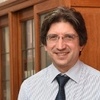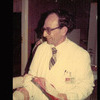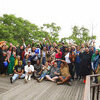VC interim’s first 250 days in office bring stability, equanimity
20 November 2023 | Story Helen Swingler. Photo Lerato Maduna. Read time >10 min.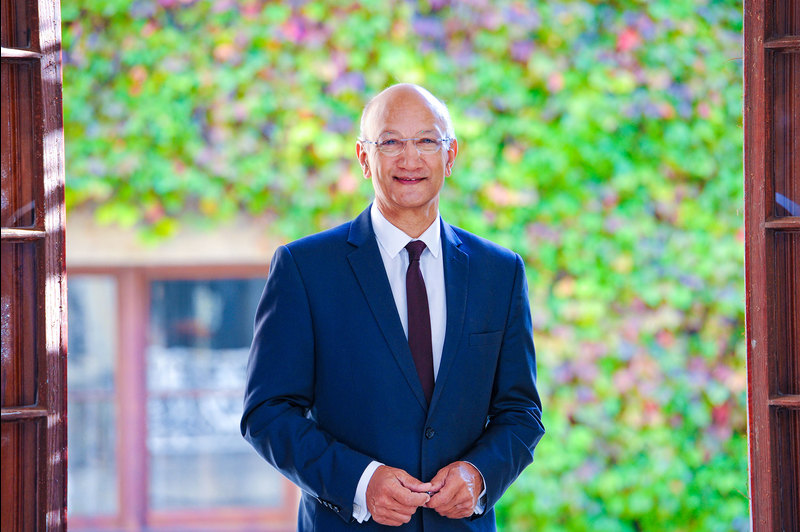
On 19 November, Emeritus Professor Daya Reddy will mark 250 days in office as vice-chancellor (VC) interim. In an interview with UCT News, Professor Reddy spoke about the need to restore stability within the university and the UCT community’s resilience and commitment to keeping things on track.
Helen Swingler (HS): You once mentioned that you were ‘extracted’ from peaceful retirement to take up the mantle of VC interim earlier this year after the departure of the former VC. What persuaded you to step into what must have been a difficult and tense situation?
Daya Reddy (DR): The approach to me came completely out of the blue. But that being said, it didn’t take me too long to decide that I would agree. I’d had conversations with various colleagues, some of whom were quite persuasive. I’d had such a long association with the university and was very concerned about the direction of events – and the harm that it was doing to the university. Once I’d recovered my composure, I chatted with my wife, Shaada. That was the big thing because it was clear that this decision would turn our lives upside down. So, once she assured me of her support for me to make myself available, and I thought through the implications, it was clear to me that I should do this.
HS: What have been the most significant challenges of your first 250 days in office and how have you and the executive responded to these?
DR: It had been put to me formally and informally that what the university needed, more than anything else, was to ensure that the institution functioned in stable circumstances and in a stable environment. There was a lot of tension around [the campus], and that was not at all conducive to a well-functioning work environment, not for the staff or students. Broadly, I saw that as my number one goal: to ensure that we had a stable, well-functioning executive, including the deans and the executive directors, and that everything stayed on course, particularly our academic activities, ie teaching and research.
“After all the upheavals here, we have a very clear expression of confidence in and support for the university.”
HS: What have been the standout success stories at UCT the past 250 days, even amid the crisis management?
DR: Research is high on the list of activities and accomplishments that we can feel happy and proud about. There have been several research achievements that have been very well reported on internally and beyond. The academic programmes and activities have also proceeded well. We hosted a huge set of graduation ceremonies in late March and celebrated 5 400 graduates. In July, we capped 104 PhD graduates and awarded four honorary doctorates. And that was so affirming. It was a concrete expression of the fact that our students have done well; that things have been on track. And now, after completing teaching for the second semester, we are well into the end-of-year exam season. Another highlight is that during this period we’ve received some significant donations. I mention these as success stories because, after everything that has been said about UCT and after all the upheavals here, we have a very clear expression of confidence in and support for the university. And that augurs well for the future.
HS: You have served in the executive leadership before as Dean of Science and stints as acting DVC. But as VC interim, much more has been required of you. What have you gained or learnt in these 250 days?
DR: I served for seven years as a dean, and in many ways, a deanship could be considered as a microcosm of the vice-chancellorship. I say this in light of our devolved structure, as a result of which deans have responsibilities that go beyond the academic and include finance, human resources, physical planning, and so on. In the case of the VC, in a simplistic way, that is the case as well. But the degree of complexity, the scale, the demands of the position, are just something altogether different! In addition, there is the added level of complexity that derives from the external environment. The VC has a range of responsibilities pertaining to the Ministry of Higher Education, as a member of Universities South Africa (USAf), with civil society, the business sector, our alumni and our donors. Given the ups and downs of the past year, I have spent a lot of time communicating with donors to assure them about where we’re headed as an institution and, in many cases, allaying their fears and concerns. And within all of this is ensuring the centrality, as an academic institution, of the twin pillars of teaching and research. UCT is a huge community of just under 30 000 students and 5 000 staff. It’s like a town. What I do find slightly frustrating is the limited extent to which I’m able to get out there and chat with colleagues and students. I try to do as much of that as I can. But it feels to me that I’m not seeing enough of my colleagues and our students and I continue to work on that.
“UCT is a huge community of just under 30 000 students and 5 000 staff. It’s like a town.”
HS: As you’ve mentioned, UCT has entered the ‘hot’ season of the academic calendar, and the end of the academic year is not far off. What messages of encouragement do you have for our students and staff?
DR: First, with regard to the students, we’re now well into the exam period and it’s important to encourage and nurture students – they’ve done well to come this far. We’ve had a really peaceful semester, and we’ve been able to complete all courses in person. There have been a few complications with load-shedding but nevertheless, our students have fared well. Right now it’s important for those who are still writing to devote themselves to focusing on the exams and to do their very best. I know, it’s stressful. And I know that mental health is a serious concern among our students. I appeal to our students to seek help from Student Wellness Service if they are struggling, even if it’s not clear in their own minds what that may be. They should not work on the assumption that this is how it is, and this is how it’s supposed to be. It’s not supposed to be like that. With regard to the staff, firstly, well done. Well done on staying the course on continuing to work really hard and with serious commitment. And I’m referring to our academic staff and the professional, administrative support and service staff. It has been a stressful year. But here we are in mid-November. The exams will soon be over. There’s a mountain of marking and administration to be done. But let’s see that through and then look forward to a breather at the end of the year.
HS: Once the position of VC has been filled, how will the handover be managed?
DR: That would be something for Council to decide. There are options. If Council feels that it would be useful for me to assist in the early period that the new VC takes office, I’d be happy to do that, not holding any formal office.
HS: What are your plans once you return to retirement?
DR: When I stepped in as VC interim, I did have various commitments, and put some on hold. Some I could not, and I had to see those commitments through, which has not been easy. But it’s worked out. I hold various positions on boards, advisory boards and so on, both in the country and internationally, and I’ve retained those. I look forward to devoting more time to those activities. I’m also looking forward to getting back to some of my research activities. And I’d like to spend some time just staring at a blank diary, to remind myself what that looks like! And functioning without a routine, spending more time with my family.
“Two hundred and fifty days is a good period to reflect on. First, I’m certain now – not that there was any doubt in my mind – of what a good, fine, strong institution UCT is.”
HS: Is there anything else you’d like to add?
Two hundred and fifty days is a good period to reflect on. First, I’m certain now – not that there was any doubt in my mind – of what a good, fine, strong institution UCT is; an institution that has been through a rocky time. There is an almost contradictory way of looking at all of this in the sense that we talk about the fragility of academic institutions and the fragility of the institution’s staff during periods of turmoil, and that is so. But at the same time, I’ve had good reason to reflect on the resilience of the institution and its people. And it’s because of that that we are where we are now. The staff have done a great job under difficult conditions, and we must recognise the impact that this has had on their well-being, their health and their ability to function effectively. But they have come through. I’ve been here for 250 days, but my colleagues have had to contend with these upheavals for quite some time – and it must take its toll in one way or another. I’m asked very often about how things are going, and in my responses l indicate that most of the time I’m enjoying myself. And I’m happy to be doing this and I do find it rewarding. Part of the reason for that is the collegiality that I have experienced [and] the wonderful support from colleagues, right across the university. This collegiality finds expression in all sorts of ways. And this has really helped in getting to get to grips with the more difficult aspects of the job. But the university mustn’t delay in appointing a VC!
 This work is licensed under a Creative Commons Attribution-NoDerivatives 4.0 International License.
This work is licensed under a Creative Commons Attribution-NoDerivatives 4.0 International License.
Please view the republishing articles page for more information.
Faculty of Health Sciences News

Renowned cancer scientist Prof Sharon Prince has been honoured with the 2025 A.G. Oettlé Memorial Award for her pioneering research, leadership and dedication to developing affordable cancer therapies in South Africa.
23 Dec 2025 - 5 min read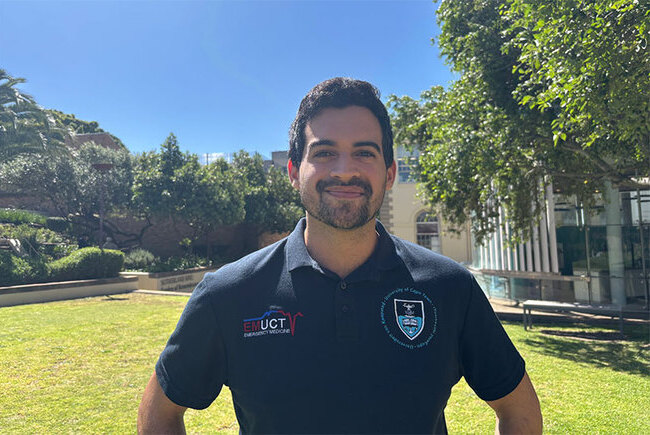
Emergency Medicine lecturer Wesley Craig applied his training in emergency care to rescue a patient who had gone into cardiac arrest at his gym. He recounts his experience and emphasises the importance of acting in spite of fear.
18 Dec 2025 - 4 min read












